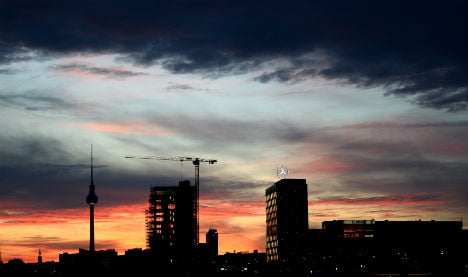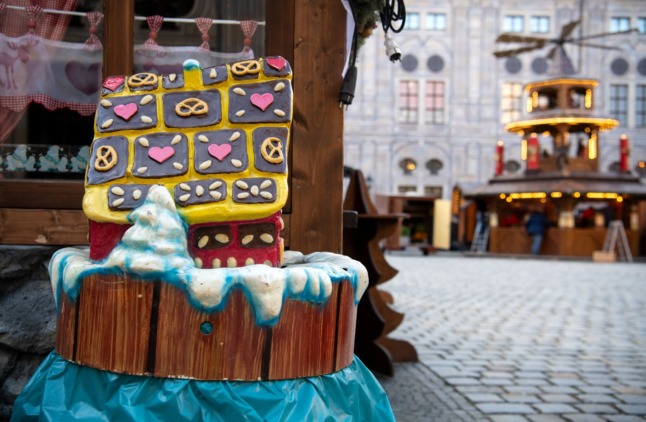The Local asked people two main questions: whether they are worried about a similar attack hitting Berlin, and whether their opinions on the refugee crisis have changed as a result of the attacks.
Moabit
In Moabit, a district with a large immigrant community near the centre of Berlin, it appears that people genuinely fear an attack on the capital. Two Palestinian refugees sitting on a bench outside the Regional Office for Health and Social Affairs, where refugees and asylum seekers come to register for social housing, express their fear of going out in public places, “especially alone”.
However, others seem less concerned about the potential terror threat. “You can’t prevent it from happening”, says a German lady who is doing some window-shopping in another area of Moabit, claiming that weapons are far too easily available online.
She adds that people are overemphasizing the fact that refugees carried out three of the attacks, when she believes the real issue at stake is that two of the attacks were carried out by people with mental health issues who had not received adequate care. “My personal opinion about refugees has not changed. It’s important that Germany protects them”.
Potsdamer Platz
In Potsdamer Platz, a tourist hub in central Berlin, a number of holidaymakers are not at all worried about going out into public places in the capital. Two middle-aged ladies from the Netherlands assert: “It won’t happen here”, while three other people maintain that it is pointless to deliberately avoid the capital, because “it can happen anywhere”.
Several others argue that there is no reason why Germany should limit its intake of refugees just because three of the attacks were carried out by immigrants.
“There are so many good refugees who contribute to Germany in a positive way that it would be sad if they had to suffer because of a few radicals,” two Danish tourists claim.
This sentiment is echoed by a young German couple, who warn against “the dangers of generalizing” and labelling all immigrants as a threat.
Instead, Germany needs to “make more of an effort to help immigrants get integrated into society”, so that they don’t slip under the radar, says a young German lady doing some shopping.
“Right-wing radicals are spreading panic” about the terror attacks and their link with immigrants, asserts a lady from a Kazakhstani background who works in Potsdamer Platz.
The threat posed by refugees is not actually very high, she says. “Either you live in fear or you go about your everyday life”.
But other people in the packed tourist hotspot are worried about busy areas such as Potsdamer Platz, Alexanderplatz, and the Brandenburg Gate potentially becoming a target for terrorist attacks.
“You can’t search people’s bags and shoes in a public place like that,” states a campaigner for the Red Nose charity in Germany.
A middle-aged British lady claims that a stronger police presence is necessary to act as a deterrent for attackers. “In England you always see policemen but here I don’t see much security around”.
She then adds that avoiding public places would mean “giving in” to the terrorists’ desire to create a climate of fear.
“I commend Angela Merkel’s openness to refugees”, the lady says, “but having an open door policy is a danger”. However, she adds that this opinion is based more upon a fear of German culture being diluted by the influx of immigrants, and less upon the involvement of refugees in two of the attacks.

Potsdamer Platz; Photo: DPA
Schöneweide
In Schöneweide, a rundown district close to the south-western outskirts of Berlin, the atmosphere is less relaxed.
“I generally don’t go out to public spaces anymore. Something might happen at any given point”, says an elderly woman at a mall close to the train station. When asked if she feels threatened by the influx of refugees, she doesn’t want to respond at first.
Then, suddenly, her answer comes bursting out:
“Enough is enough! This is not normal anymore. There are far too many of them here!”
Thomas Schlesinger, a builder who is working next to an old café, says: “Because we took in refugees in such an uncontrolled manner, an incident like these attacks was bound to happen.”
But to Peter Beer, a German man in his sixties, the solution is not controlling the influx of refugees, but improving the integration process.
Smoking a cigarette outside the Die Linke (The Left Party) office in Schöneweide he says that “if we don’t improve and accelerate this process, it will be tough. I mean, you have young men staying at a gym for nine months with no private space whatsoever.”
A man on the opposite side of the street agrees:
“We need to help them, because where they’re from, there is war.”
Neukölln
But some of the smouldering skepticism towards the intake of refugees is spreading in other parts of the capital, such as Neukölln.
An area close to the centre of Berlin, Neukölln has traditionally housed residents with an immigrant background. In the past years, more and more students and young families have moved to the area.
Recently, refugee shelters, too, have been popping up in different parts of the district.
Hakan B., a man in his early thirties, has grown up and gone to school in Berlin. The life of the Neukölln resident has been heavily affected by refugees.
Standing in a shop close to the train station, he too is hesitant to respond at first.
“I don’t know if I should really say this. But anyway. Everything is so chaotic since they’ve come here. There is more crime”, he complains.
While he doesn’t perceive a threat from the refugees, he has frequently been stigmatized himself.
“They throw all of us in one big pot. Now, people look at me weirdly, just because I have a beard. The refugees should piss off“, he complains.
In contrast, Masa Ince, a man in his fifties with an immigrant background, doesn’t think that refugees are the problem. He is more concerned with the general security situation.
“Things are more unsafe now, of course – the world is an unsafe place”, he says, sitting at breakfast inside a dim side-street café.

Alexanderplatz; Photo: DPA
Alexanderplatz
At Alexanderplatz, a crowded tourist hotspot and busy intersection of train lines in the former East Berlin, a number of people say that they are determined to go on living their day-to-day lives despite last week’s horrific events.
“Crazy people will never die out”, claims a holidaymaker from the Rhineland, who is sitting on a bench having lunch with a friend.
A man in his twenties from Rostock argues that if everyone avoided busy public places and packed events, “they [the terrorists] would get what they wanted”.
By contrast, a Berliner who commutes every day to Alexanderplatz says that he is “extremely fearful” of an attack on the capital.
But another young man in tracksuit bottoms and a shirt whiling away his time on the steps of a tourist shop could not be less worried.
“I mean, the chance of it happening is one in a million.”
By Verity Middleton and Max Bringmann



 Please whitelist us to continue reading.
Please whitelist us to continue reading.